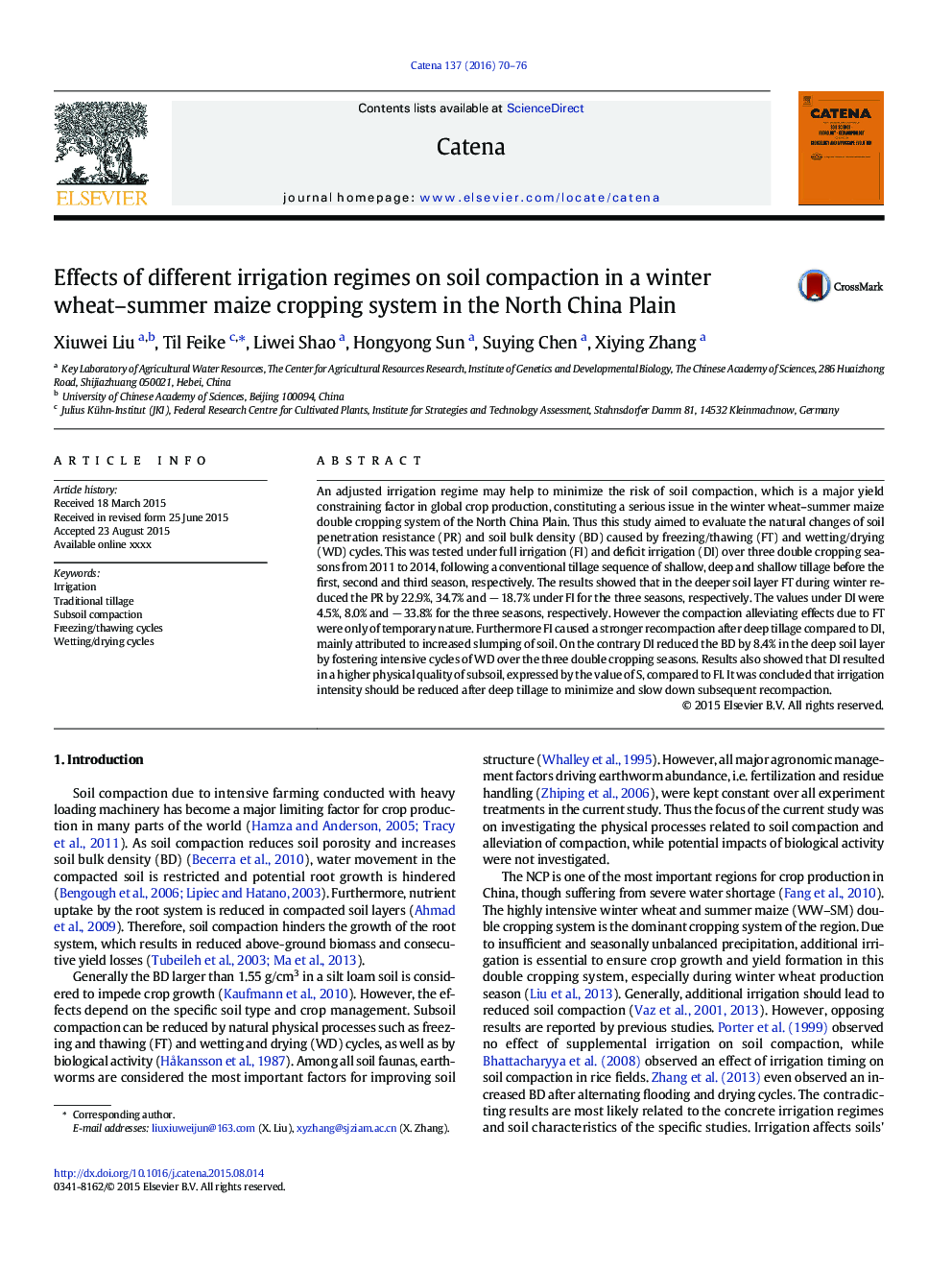| Article ID | Journal | Published Year | Pages | File Type |
|---|---|---|---|---|
| 6407930 | CATENA | 2016 | 7 Pages |
Abstract
An adjusted irrigation regime may help to minimize the risk of soil compaction, which is a major yield constraining factor in global crop production, constituting a serious issue in the winter wheat-summer maize double cropping system of the North China Plain. Thus this study aimed to evaluate the natural changes of soil penetration resistance (PR) and soil bulk density (BD) caused by freezing/thawing (FT) and wetting/drying (WD) cycles. This was tested under full irrigation (FI) and deficit irrigation (DI) over three double cropping seasons from 2011 to 2014, following a conventional tillage sequence of shallow, deep and shallow tillage before the first, second and third season, respectively. The results showed that in the deeper soil layer FT during winter reduced the PR by 22.9%, 34.7% and â 18.7% under FI for the three seasons, respectively. The values under DI were 4.5%, 8.0% and â 33.8% for the three seasons, respectively. However the compaction alleviating effects due to FT were only of temporary nature. Furthermore FI caused a stronger recompaction after deep tillage compared to DI, mainly attributed to increased slumping of soil. On the contrary DI reduced the BD by 8.4% in the deep soil layer by fostering intensive cycles of WD over the three double cropping seasons. Results also showed that DI resulted in a higher physical quality of subsoil, expressed by the value of S, compared to FI. It was concluded that irrigation intensity should be reduced after deep tillage to minimize and slow down subsequent recompaction.
Related Topics
Physical Sciences and Engineering
Earth and Planetary Sciences
Earth-Surface Processes
Authors
Xiuwei Liu, Til Feike, Liwei Shao, Hongyong Sun, Suying Chen, Xiying Zhang,
